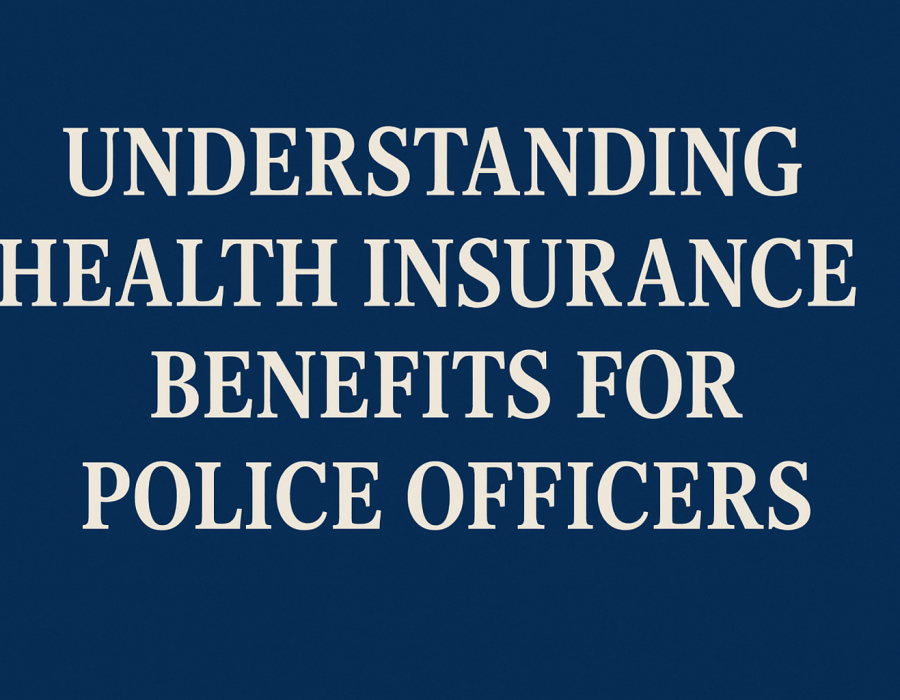Health insurance for police officers plays a vital role in ensuring their safety, well-being, and peace of mind while they serve and protect the community. Law enforcement officers face a variety of health risks, including physical injury, mental stress, and occupational hazards that require robust and reliable healthcare coverage.
This article breaks down everything police officers need to know about their health insurance benefits, including common features, coverage options, and how to choose the best plan for themselves and their families.
Why Health Insurance Matters for Police Officers
Police work is both physically and emotionally demanding. Officers often work long hours, deal with high-stress situations, and face potential injuries in the line of duty. Without adequate health coverage, the financial burden of medical care can become overwhelming.
Health insurance not only ensures access to medical treatment when needed but also offers preventive care and support for chronic conditions, which helps officers stay fit for duty.
Common Health Insurance Coverage for Law Enforcement
Most law enforcement agencies provide comprehensive health insurance as part of their employment benefits. Let’s explore what typical coverage includes:
1. Medical Services
Police officers usually receive coverage for:
- Hospital stays
- Emergency room visits
- Surgeries
- Doctor visits
- Specialist care
These services are essential for treating injuries sustained on duty and managing general health concerns.
2. Mental Health and Counseling
Mental health support is a growing priority in police departments. Health insurance plans commonly include:
- Access to licensed therapists or counselors
- Treatment for post-traumatic stress disorder (PTSD)
- Substance abuse programs
- Stress management resources
This aspect of coverage helps officers cope with the emotional challenges of their profession.
3. Prescription Drug Coverage
Most plans include partial or full coverage for prescription medications. Officers may require medications for injuries, chronic conditions like hypertension, or mental health support.
4. Preventive Care
Annual physicals, immunizations, screenings, and wellness checkups are often covered without additional cost. Preventive care helps identify potential health issues before they become serious.
Health Insurance for Police Officers and Their Families
Health benefits typically extend to immediate family members, including spouses and children. Family coverage ensures peace of mind, knowing that loved ones also have access to quality healthcare.
Many departments offer multiple plan tiers, allowing officers to select a plan that meets their family’s specific medical and financial needs.
Additional Benefits Beyond Basic Coverage
In addition to standard medical coverage, health insurance for police officers may include the following supplemental benefits:
Dental and Vision Insurance
Some departments offer optional or bundled dental and vision plans, which cover:
- Routine eye exams and glasses
- Teeth cleanings, fillings, and major dental procedures
Health Savings Accounts (HSA) or Flexible Spending Accounts (FSA)
These tax-advantaged accounts allow officers to save for medical expenses not covered by insurance, such as co-pays, deductibles, or over-the-counter medications.
Disability Insurance
Short-term and long-term disability benefits may be available in case an officer is injured and unable to return to work for an extended period.
Health Insurance for Retired Police Officers
Retirement doesn’t always mean the end of health benefits. Many departments offer retiree health insurance coverage. While the benefits may vary, some departments allow officers to remain on the employer’s health plan or offer a retiree-specific option.
These benefits provide continued security after decades of service and reduce the burden of securing private health insurance after leaving active duty.
Choosing the Right Health Insurance Plan
With multiple options often available, selecting the best plan can be challenging. Here are some tips for police officers when reviewing their health insurance choices:
1. Compare Premiums and Deductibles
Choose a plan that balances monthly premiums with out-of-pocket costs. A lower monthly premium may come with a higher deductible, which could be costly in emergencies.
2. Check the Provider Network
Ensure that your preferred doctors and local hospitals are in-network. Out-of-network care can be significantly more expensive.
3. Evaluate Mental Health Benefits
Given the pressures of law enforcement, make sure the plan includes robust mental health support.
4. Review Prescription Coverage
If you regularly take medications, review how much coverage is provided and whether your medications are on the approved drug list.
5. Understand Family Coverage Options
Look at the costs and benefits of covering your spouse and dependents. Some plans offer tiered family coverage options.
Tips for Maximizing Your Health Benefits
- Use preventive care services: They’re often fully covered and can catch health issues early.
- Take advantage of wellness programs: Many plans offer rewards for completing health assessments or fitness challenges.
- Understand how your plan works: Know your co-pays, deductibles, and coverage limits to avoid surprises.
Conclusion
Health insurance for police officers is more than just a benefit—it’s a vital resource that supports their ability to serve effectively and safely. From emergency care to mental health services and family coverage, a comprehensive plan helps officers stay strong both physically and emotionally.
By understanding the key elements of their coverage and knowing how to choose the right plan, police officers can protect themselves and their families now and in the future.
FAQs
Do police officers automatically get health insurance?
Yes, most full-time police officers receive health insurance as part of their employment benefits, including medical, dental, vision, and sometimes disability coverage.
Are mental health services included in police officers' insurance plans?
Yes, many plans provide mental health support, such as counseling, therapy, and treatment for stress-related conditions like PTSD.
Can family members be included in a police officer’s health insurance plan?
Absolutely. Spouses and dependents are typically eligible for coverage under the officer’s plan, often with customizable options based on family size.





Comments